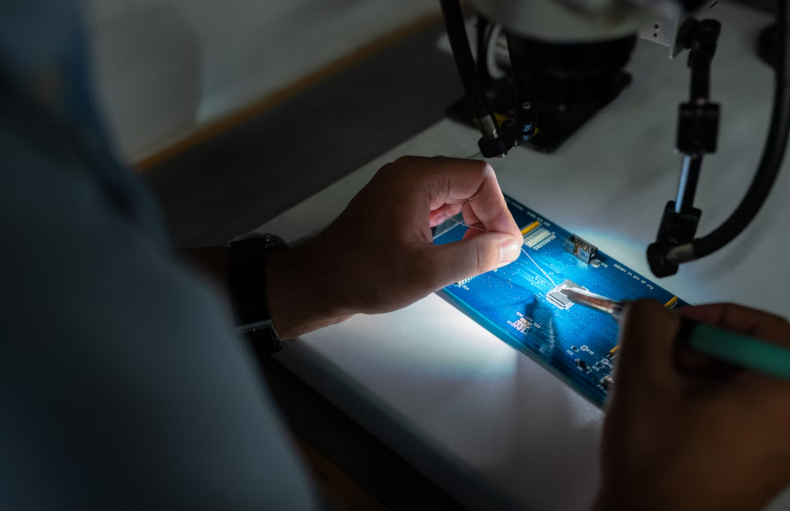In the ever-evolving landscape of medical technology, NXP Semiconductors has emerged as a leading force in driving innovation. By offering cutting-edge solutions in microcontrollers, connectivity, and embedded systems, NXP is transforming the way medical and wellness devices are designed and deployed. This article explores how NXP Semiconductors is shaping the future of medtech, enabling smarter, safer, and more efficient healthcare solutions.
Table of Contents
The Role of NXP Semiconductors in MedTech
NXP Semiconductors develops hardware and software solutions tailored to meet the unique challenges of medical device development. Their portfolio includes microcontrollers (MCUs), wireless connectivity solutions, and secure processing platforms. These technologies empower medtech developers to create devices that are more connected, precise, and reliable.
Key Features of NXP Technology in Medical Devices
- Low-Power Consumption: Essential for wearable and portable medical devices.
- High-Performance Processing: Enables real-time analytics and decision-making.
- Secure Communication: Ensures patient data privacy and compliance with regulations like HIPAA.
- Wireless Connectivity: Facilitates IoT integration and remote monitoring.
- Scalability: Adapts to various applications, from diagnostic tools to therapeutic devices.
Applications of NXP Semiconductors in MedTech
1. Wearable Health Monitors
NXP’s low-power MCUs and connectivity solutions are integral to wearable devices like fitness trackers, continuous glucose monitors, and ECG patches. These devices rely on NXP technology to process and transmit real-time health data securely and efficiently.
2. Diagnostic Equipment
Portable diagnostic tools, including ultrasound machines and handheld imaging systems, leverage NXP’s processing power and energy efficiency. Their high-performance MCUs ensure accurate and timely diagnostic results.
3. Smart Drug Delivery Systems
From insulin pumps to automated medication dispensers, NXP’s secure processing platforms enable precise control and monitoring of drug delivery systems, enhancing patient safety and adherence.
4. Hospital Asset Tracking
NXP’s NFC (Near Field Communication) and RFID (Radio Frequency Identification) technologies are widely used in tracking critical medical equipment, ensuring availability and reducing operational inefficiencies.
5. Robotic Surgery
Robotic surgical systems require precise motion control and real-time data processing. NXP’s high-performance processors and real-time operating systems (RTOS) enable the precision and reliability needed in these complex systems.
NXP’s Innovations Powering MedTech
1. Low-Power MCUs
NXP’s Kinetis and LPC series MCUs are designed for energy-efficient operations, making them ideal for battery-powered medical devices. These MCUs deliver high performance without compromising on power consumption.
2. Secure Processing Platforms
With patient data privacy being paramount, NXP’s secure processing solutions provide advanced encryption, secure boot, and tamper resistance, ensuring compliance with global healthcare regulations.
3. Wireless Connectivity
NXP offers a range of connectivity solutions, including Bluetooth Low Energy (BLE), Wi-Fi, and Zigbee, enabling seamless integration of medical devices into IoT ecosystems.
4. Edge Processing
Edge computing capabilities allow devices to process data locally, reducing latency and enhancing reliability. This is particularly critical in applications like wearable health monitors and diagnostic tools.
5. AI Integration
NXP’s hardware supports AI and machine learning algorithms, enabling devices to analyze data in real time for predictive analytics, diagnostics, and personalized patient care.
Why Choose NXP Semiconductors for MedTech Development
1. Comprehensive Ecosystem
NXP offers a complete development ecosystem, including software development kits (SDKs), evaluation boards, and support tools, streamlining the device development process.
2. Regulatory Compliance
NXP’s solutions are designed to meet stringent medical standards, including ISO 13485 and IEC 62304, ensuring a smooth path to market for medical devices.
3. Global Support Network
With a robust network of support and resources, NXP ensures developers have access to the expertise needed to bring their products to life.
4. Scalability and Customization
NXP’s modular approach allows developers to customize solutions to meet specific application requirements, from simple monitoring devices to complex surgical systems.
Challenges and Solutions in Using NXP Technology
1. Integration Complexity
Developers may face challenges integrating multiple technologies into a single device. NXP’s development tools and reference designs simplify this process.
2. Security Concerns
With connected devices, data security is a critical concern. NXP’s secure processing platforms provide advanced encryption and authentication protocols to mitigate risks.
3. Power Management
Achieving a balance between performance and power efficiency can be complex. NXP’s low-power solutions and energy-efficient designs address this challenge effectively.
The Future of MedTech with NXP Semiconductors
The integration of NXP’s advanced technologies will continue to drive innovations in medtech. Key trends to watch include:
1. AI-Powered Diagnostics
NXP’s AI capabilities will enable devices to deliver more accurate and faster diagnostics, reducing the burden on healthcare providers.
2. Enhanced IoT Connectivity
With the growing adoption of IoT in healthcare, NXP’s wireless connectivity solutions will play a pivotal role in enabling seamless device integration and data sharing.
3. Miniaturization and Wearability
NXP’s compact and low-power solutions will enable the development of smaller, more comfortable wearable devices.
4. Telehealth Expansion
As telehealth continues to grow, NXP’s secure and reliable platforms will support the development of connected devices for remote monitoring and consultations.
Conclusion
NXP Semiconductors is at the forefront of medtech innovation, delivering technologies that enable smarter, more connected, and efficient healthcare solutions. From wearable health monitors to robotic surgery systems, NXP’s solutions are transforming patient care and operational efficiency in the healthcare industry. By leveraging NXP’s advanced platforms, medtech developers can create groundbreaking devices that redefine the future of healthcare.
For further insights into medical device engineering and innovations, explore our detailed guide here.




 430 Park Ave, New York, NY 10022, USA
430 Park Ave, New York, NY 10022, USA Paevalille tn 6, Office 84, Estonia, Tallinn, 13517
Paevalille tn 6, Office 84, Estonia, Tallinn, 13517 Barykadna St 7, Dnipro, Ukraine, 49000
Barykadna St 7, Dnipro, Ukraine, 49000